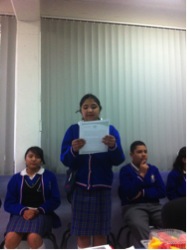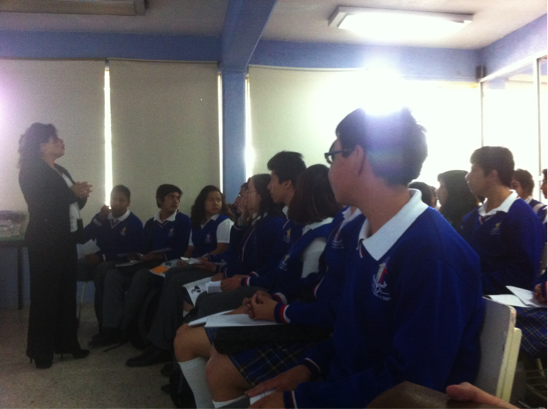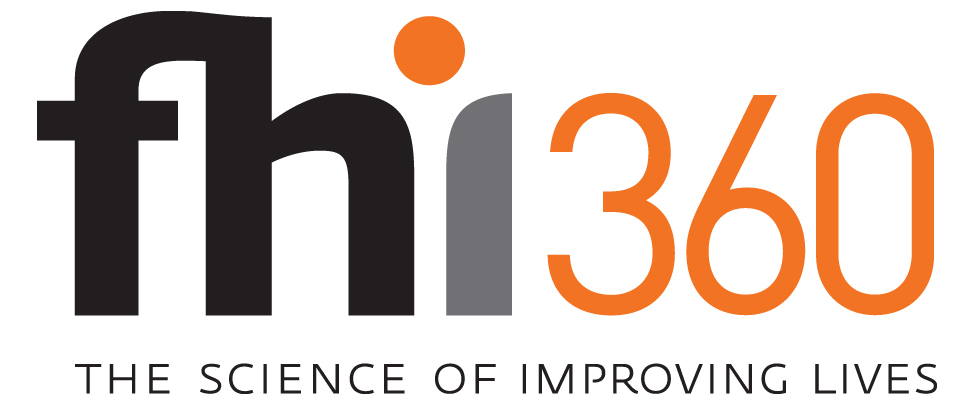 September 19, 2013 – Becky Wolozin
September 19, 2013 – Becky Wolozin
This summer I worked as a legal researcher at Mexicanos Primero, entirely in Spanish. Over the course of the summer, I built a digital legal library for the organization of cases and legislation from international institutions (mainly the Inter-American system) and from Mexico. I also compiled a database to navigate the digital library and gave a presentation at the end of my stay on my general findings, strategic thinking about potential cases, and how to use the database and library.
Early in my internship, I got to go on a school visit to see a very impressive public high school in the north part of Mexico City. The school has been recognized for its excellence and is doing some really great things. First of all, the director is an amazing leader. The teachers and staff gushed about him throughout the day. When we arrived, he invited us into his office to talk to us about his philosophy about education and running a school. He talked about a school needing to be about passion for the students, about creating a community and teaching students not just academics but how to be good people, how to contribute to their communities and their world, how to learn for a purpose beyond test scores and grades. I was hooked, and we were only half an hour into our half-day visit!
The teachers were also amazing! They were energetic and passionate. We visited some classes and the teachers were doing really creative things to teach their subjects. They had integrated technology into the classroom in a way that seemed to complement and support the subject matter, from student-made videos about Mexico’s economic history to the school’s student blog on its website, kids of all ages were doing some really creative things. Not only does the school have departments of teachers, but also teachers dedicated to student activities and student ‘orientation’ and to evaluating teachers and classes.
After visiting classes and getting a marching band and color guard performance, went into a 3 hour long presentation where the director, students and staff presented all aspects of the school. The students who were sitting around the perimeter of the school turned out to be the top students, all of whom participated in a project where the school brought in a film director and worked with the students to select and produce a student-written screenplay as a short film. It dealt with issues of hunger and domestic violence in students’ homes and how that affected students’ school experiences. It was really stunning. And that was just one of the dozens of school activities and projects that students were involved in. Students have singing and dancing groups, band, a radio station (linked to Facebook) sports teams, and public service groups and events. And the whole school was so engaged in the community. They did a march against violence and organized 20-something weekend events and activities throughout the year for students and families. As the presentation went on, each teacher talked about different aspects of the school, from test scores and test prep to a program on emotional development and awareness. Each thing they talked about reflected some best practice I have learned about in both law school and getting my masters in education. It was as if someone had taken all of my classes and read all the research I read last year, said, “Ok, let’s do this,” and implemented everything. One particularly striking program was the teacher evaluation system. In addition to having a system of formative and summative teacher evaluations that include several classroom observations a year (both announced and unannounced), the students themselves can complete online surveys about their teachers and classes through the school’s website. The full evaluation system rivals that of the most progressive school districts in the U.S. and is done completely in-house through the school’s evaluation department.
As I was sitting and listening both to the presentation and the comments at the end, thinking about how to put this incredible school into the broader picture of education in Mexico, about how to answer the question “how do we scale this” with the idea that maybe for this type of detailed school ecosystem, scaling is not the right response; about how to learn from this school knowing that simple or even complex replication would not work in any other school with its unique students, parents, teachers, leaders. As I was thinking about all the different incredible things each member of this school does, and the community they create together, I saw that change is made both in broad sweeps and tiny shifts, through building structures secure enough to support the individual actions that make change each day. One without the other will never be enough. Even more, the broad strokes (like legislation, a national evaluation institute, charter school legal structures, whatever they are) must complement and be complemented by these important single acts and not simply laid on top of them or made half-hazardly without consideration of the enormous effort teachers and families and schools are making every day. The work done by the members of this school, just by the simple fact that they have done it, has already made a difference. It has set the bar high. It has paved the way for other motivated teachers and parents, other motivated school directors and administrators to build their school’s ecosystems. And I found myself thinking that maybe the most important thing to take away from what the school has done is to urge them to share what they know, to talk to others who want to listen, to recognized the hard work of all involved and share their experiences with as many people as they can. Then more people can take the important steps of taking action on the individual level, while broad strokes are being made to help those individuals succeed.
When I wasn’t doing field visits, I was compiling the digital library and cataloging hundreds of statutes and cases from Mexico and from Latin America. As I started putting together my final presentation, I began to realize that I had put together a pretty cool tool, and that I had read hundreds of laws and dozens of cases, all in Spanish, and successfully identified and categorized the most important things. I somehow learned about Mexican labor law, international union protections, complicated hiring and promotion schemes, and so much more. And as I put the presentation together, I took what felt like a million individual pieces, like pieces of a dinosaur fossil where each article in a statute, holding in a case, sentence in the evidence cited by the court was a tiny piece and a small victory in what felt like an endless and bottomless expanse of land to dig up and began to form something larger. In the end, as I pieced everything together, the skeleton of a very complicated and expansive field of law became visible, and it was so satisfying to see the whole giant animal, so to speak, after spending so much time digging up such tiny parts. When I presented and talked through my thinking based on what I had done this summer, I had a moment where I felt like a lawyer who was starting to build some actual expertise in something I really care about. And that felt really good.
This article is excerpted from my travel blog, which can be found here.



